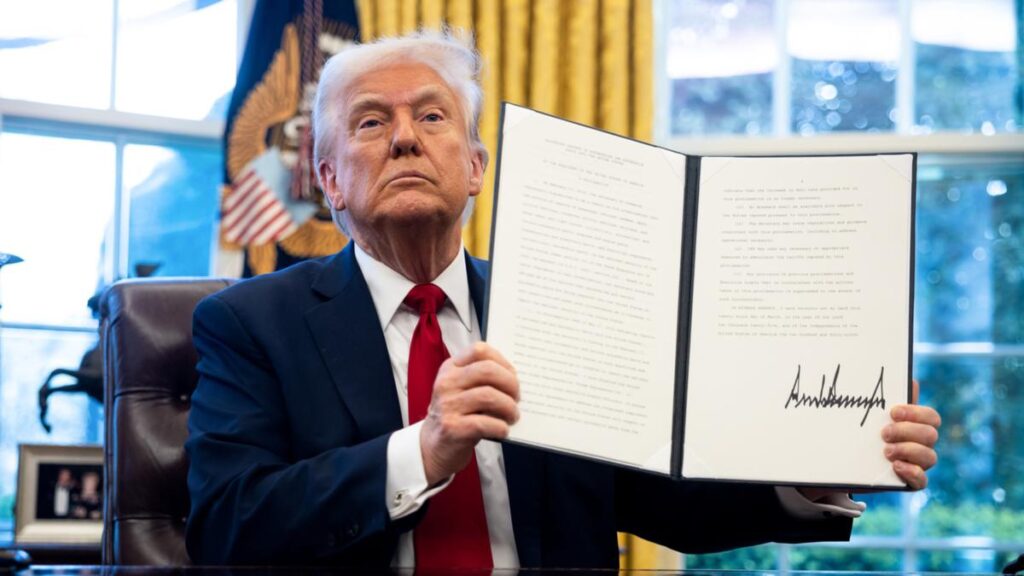President Donald Trump said he “couldn’t care less” if automakers raise car prices in response to his planned tariffs on imported vehicles.
Mr Trump was asked in an interview with NBC News on Saturday whether he warned foreign automaker chief executives not to raise consumer prices in response to the 25 per cent tariffs he plans to impose on their products next week.
“No, I never said that,” Mr Trump said.
“I couldn’t care less if they raise prices because people are going to start buying American cars.
“I hope they raise their prices, because if they do, people are going to buy American-made cars,” he said, repeating the phrase “I couldn’t care less” two more times in his lengthy answer.
Tariffs will hit a $240 billion trade route, with imported cars and light trucks accounting for about half of the roughly 16 million vehicles sold in the US last year.
By May 3, tariffs will expand to key parts such as engines, transmissions and electrical systems, with the potential to broaden out further.
Parts that comply with rules in the free-trade agreement between the US, Canada and Mexico will be initially spared from the tariffs.
Auto prices are broadly expected to increase by thousands of dollars, with JPMorgan Chase & Co. analysts estimating prices will jump 11 per cent on average.
The new taxes were announced last week in the latest assault in Mr Trump’s trade war.
US employers probably tempered their hiring in March, just as consumers grow increasingly cautious and the economic outlook dims on concerns about the fallout from higher tariffs.
Payrolls rose by 138,000, below the 151,000 increase a month earlier, according to the median projection of economists surveyed by Bloomberg.
That would leave average job growth over the past three months at the slowest pace since October. The unemployment rate is seen holding at 4.1 per cent.
The latest report card on the labour market follows data that indicate a notable first-quarter slowing in the economy.
Personal spending barely rose last month after a January slump, disposable income growth remained soft, and March consumer sentiment sank on fears of mounting inflationary pressures.
Anxiety is building among households and businesses about Mr Trump’s aggressive trade posture. Mr Trump on Wednesday is expected to unleash his biggest tariff salvo to date — a package of blanket increases in duties on foreign imports.
The US administration is seeking to reverse trade imbalances, spark investment in the US, and spur the domestic output of critical goods and materials.
“Our baseline is that the actual tariffs will be substantially lower than the worst-case scenario, that many will be implemented only after investigations, and that some countries will receive exemptions,” Bloomberg Economics said.
“Still, after the dust settles, effective tariffs on US imports could be around 15 per cent next year, the highest in almost a century.
“Facing clear upside risks to inflation, the Fed looks set to hold rates steady. The real risk is that, if the labour market does turn, rate cuts will come too late.”



